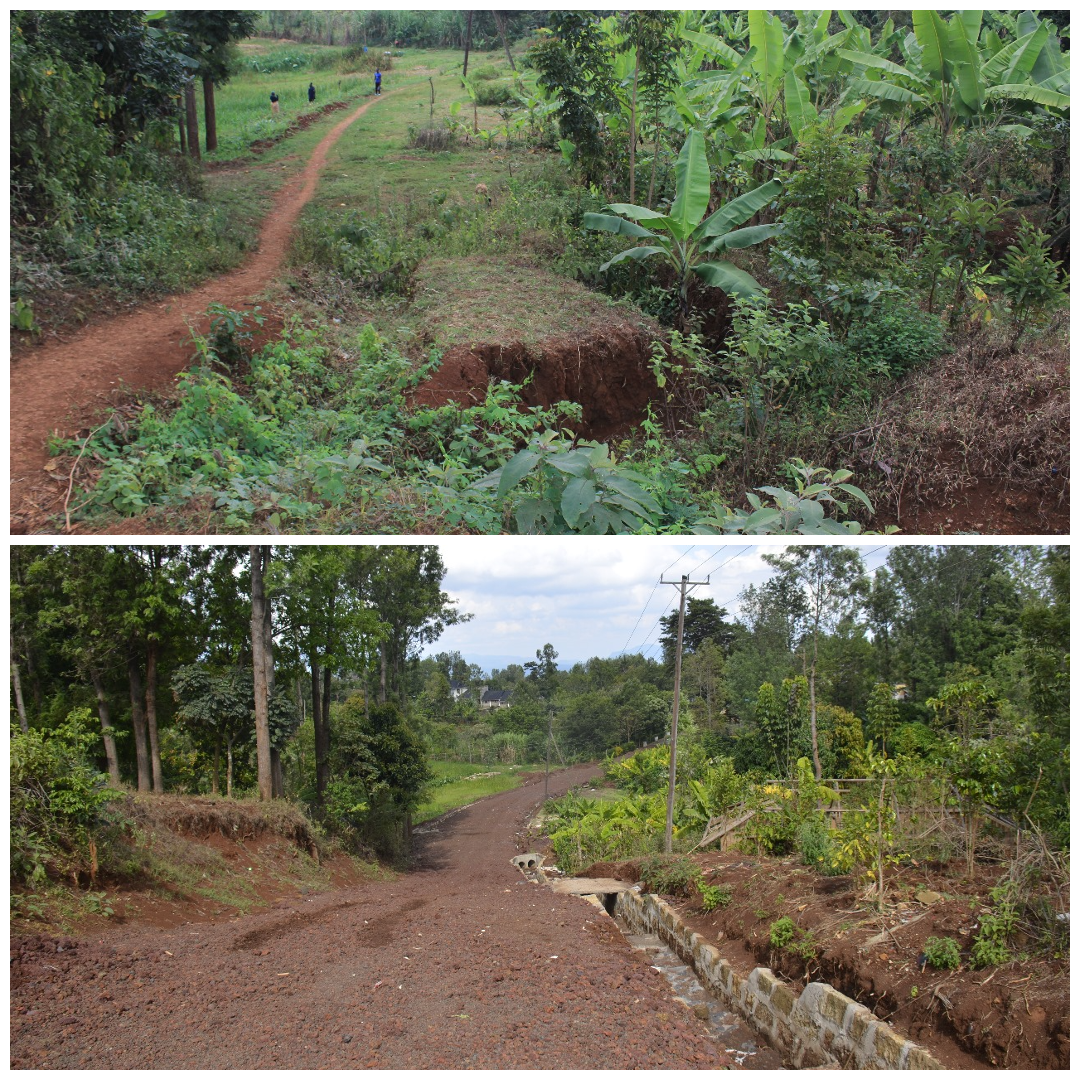World Bank applauds NGO’s initiatives to enhance livelihoods for underserved communities in Meru

A technical team from the World Bank’s Kenya office has praised Community Roads Empowerment (CORE) for its remarkable efforts in enhancing livelihood opportunities and accessibility for underserved communities in Meru County.
Since its inception in Meru in 2022, CORE, a non-governmental organization funded by the Japan Social Development Fund (JSDF) through the World Bank, has focused on rehabilitating 26 kilometers of roads.
The initiative includes training local youth and connecting 23 kilometers of existing Eastern and Western bypasses using innovative Do-nou technology.
Do-nou technology involves using gunny bags filled with materials to repair and improve severely damaged road sections, making them passable again.
During a recent site visit, both the World Bank technical team and representatives from the National Government’s Ministry of Roads and Transport expressed their admiration for the work being accomplished by trainees under CORE.
Mr Josphat Sasia, a member of the task team, highlighted the project’s positive impact on the community, noting that it began as a pilot initiative in Kenya.
“I commend CORE for equipping young women and men with valuable skills that they can apply throughout the country,” Mr. Sasia stated, urging the Ministry of Roads and Transport, the County Government of Meru, and the Kenya Urban Roads Authority (KURA) to proactively engage these skilled youth to ensure their talents are utilized effectively.
He emphasized the importance of providing job opportunities to these trained individuals, cautioning that their motivation might diminish without prospects for employment.
“During our visit, I noticed that there were no idle individuals in the community, indicating that joblessness is being addressed. This is a significant step in improving the economic landscape of these areas,” he noted.
Eng. James Theuri, National Project Coordinator at the Ministry of Roads and Transport, praised the labor-intensive Do-nou technology employed by CORE, stressing that it engages more people than machinery in the rehabilitation process.
“We hope to see the County Government adopt this technology by implementing a few kilometers of roadwork, demonstrating their commitment to innovative solutions despite budgetary constraints,” Engineer Theuri stated.
He acknowledged the substantial skills transfer that has taken place during the on-the-job training, urging both KURA and the County Government to support these efforts.

